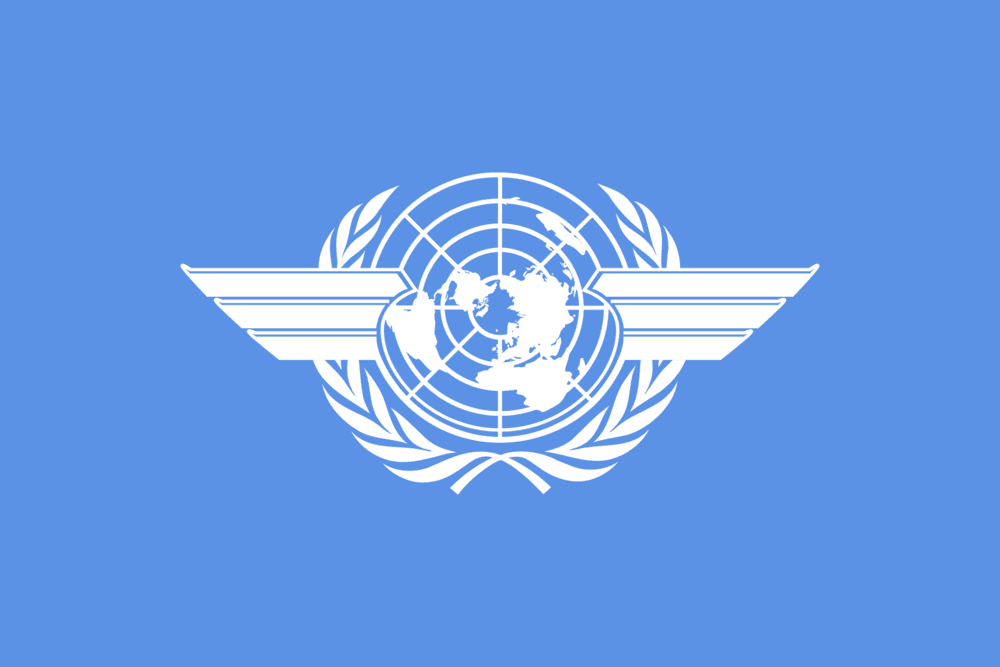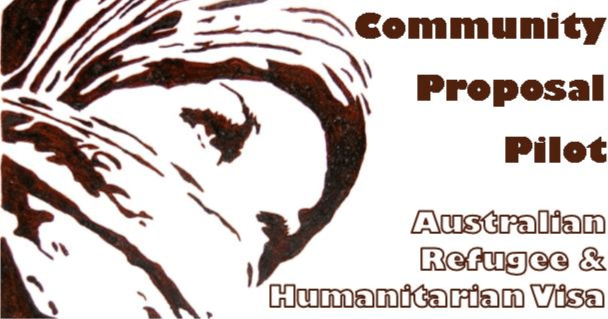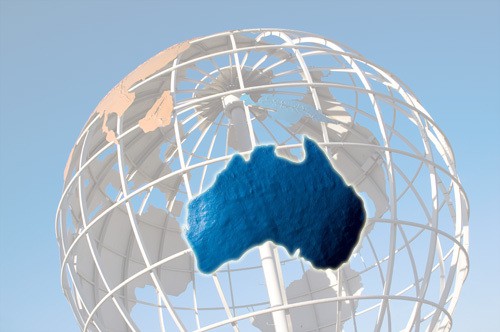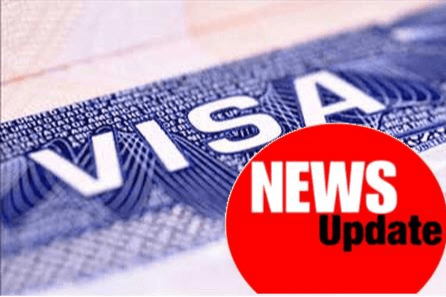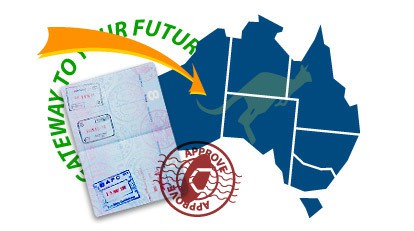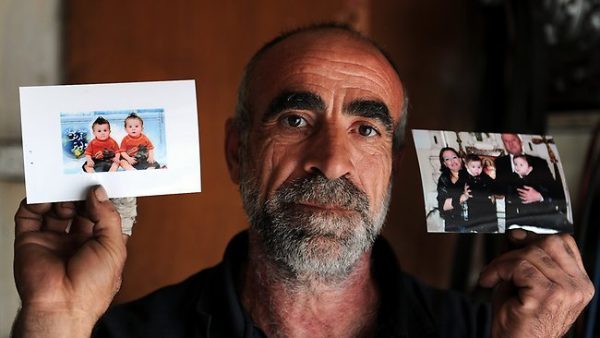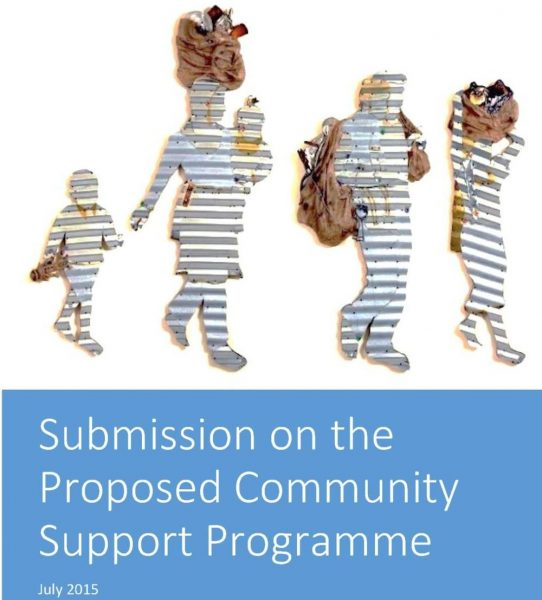
15 July 2015
Assistant Secretary
Citizenship and Humanitarian Policy Branch
Department of Immigration and Border Protection
PO Box 25
BELCONNEN ACT 2616
Dear Sir/Madam,
Discussion Paper: Community Support Programme
Please find enclosed a submission to the Department of Immigration and Border Protection. The submission is in response to the request for stakeholders’ viewpoints on the proposed Humanitarian Community Support Programme.
GMH Legal would be pleased to respond to any questions related to our submission. Any correspondence in relation to this matter should be addressed to George Hanna at ghanna@gmhlegal.com or to our postal address.
Yours faithfully
George Hanna
Partner
GMH LEGAL
MARA: 0901797
1. Should communities in Australia be able to identify people to propose for a humanitarian visa under a Community Support Programme?
Considering the ostensible success experienced to date with community organisations identifying and proposing individuals for a humanitarian visa pursuant to the Community Proposing Pilot, and given the success of similar community proposed Humanitarian Visa programmes overseas, we would consider it advantageous to Australia’s Humanitarian programme to continue the practice in Australia.
Resettlement through the current Community Proposer Pilot has allowed vulnerable people who are in danger in their country of origin to be sponsored by a friend or family member residing in Australia for Humanitarian Visa; with the presence of family or friends in Australia facilitating the Humanitarian Visa newcomer’s integration into Australian society. With the community organisations ensuring that the Humanitarian Visa newcomer is provided with financial and personal settlement support, they are able to ensure that the Humanitarian Visa newcomer is integrated quickly into Australian society.
Meanwhile the family members in Australia who are able to sponsor through the current Community Proposer Pilot are often refugees themselves, and also benefit from the arrival into Australia of the Humanitarian Visa newcomer, since they often remain preoccupied and anxious as long as their relatives have not found safety and stability overseas.
In our experience, when a well-established community organisation proposes an applicant for a humanitarian visa, they:
- are well placed to ensure that the visa applicant is well integrated into the community.
- are able to conduct welfare checks.
- have the resources and backing to ensure that the resident is provided with best possible chance of resettlement; and
- ensure that the sponsors support the refugees by providing accommodation and access to household utilities, are provided with clothing furniture and household goods, are given assistance in selecting a family physician and dentist, ensure that children are enrolled in school and adults in English language training, introducing the refugees to people of similar interest, providing orientation with regards to banking services, transport and helping them with the search for employment.
2. What are the key considerations that should determine whether a person or organisation can propose entrants under a Community Support Programme?
The five Approved Proposing Organisations (APOs) are currently the sole organisations entitled to propose applicants to the DIBP for a humanitarian visa. However we would envisage a Humanitarian Community Support Program in where there exist a wider network of APO’s that would be able to sponsor Humanitarian Visa newcomers into Australia.
These organisations would be existing community organisations that would be able to establish a closer bond with the Humanitarian Visa newcomer; whether they be part of the same community, cultural or faith based group as the newcomer, or fall within the same geographical locality as the newcomer is potentially resettling in. These existing community organisations would ideally be of a sufficient financial standing to ensure that they are able to meet the payment of all administrative charges that they may be required to make such as visa application charges (VAC), administration fees, refundable bonds, as well as provide for the resettlement and accommodation of the Humanitarian Via newcomers.
Organisations that have the prior experience and knowledge in providing resettlement services for Humanitarian Visa newcomers ought to be more favourably considered when determining whether a community organisation is able to sponsor an individual to ensure that Humanitarian Visa newcomers are given the best possible opportunity to resettle and integrate in Australian society.
Any community organisation ought to be assessed to ensure that their financial and resettlement plans are credible and would lead to the effective resettlement of the Humanitarian visa newcomer in Australia, with each community organisation being able to effectively demonstrate that they are willing and able to commit funds toward the sponsorship.
3. Is the APO model appropriate for a Community Support Programme?
The APO Model has served well in testing the demand for a fully-fledged community support programme in Australia. We have found the demand for placements in the Community Proposal Pilot to have increased exponentially over the last 3 years, with particularly strong interest in the program this year.
The demand for placements in the program indicates that there are potentially several thousands of the families, faith communities, ethnic groups, and other community associations that are interested in sponsoring people in a humanitarian situation under the fast tracked processing available under the Community Pilot Program. The demand suggests that the APO model is viable though there needs to be significantly more APO’S and placements made available under a fully-fledged Humanitarian Community Support Programme.
In Canada, there are approximately ninety “Sponsorship Agreement Holders” (“SAH”), which perform a similar function to APO’S, in a country with a similar humanitarian intake similar to Australia and a population roughly 1.5 the size. There are also provisions that broaden the potential sponsor base even further, with each SAH having the freedom to authorise a “Constituent Group” to sponsor under its agreement and provide support to the refugees. There are also provisions for groups of five or more Canadian citizens living in the expected community of settlement to collectively arrange for the sponsorship of a refugee living abroad, as well as any organizations located in the community where the refugees are expected to settle being able to make an organizational commitment to sponsor.
Australia ought to adopt a similar arrangement to the Canadian model and significantly broaden the sponsor base and refugee intake under the proposed programme.
4. What involvement could UNHCR and the Department of Immigration and Border Protection have in identifying people to propose for a humanitarian visa under a Community Support Programme?
The UNHCR is mandated to determine and assess refugee status, and can more readily identify those in a humanitarian situation and then refer them to either a panel of community organisations ready and willing to sponsor them as Humanitarian visa entrants into Australia, or to the Department of Immigration and Border Protection for resettlement by the DIBP.
There is no reason why the programme could not be driven in large part by the willingness of sponsorship groups to financially and socially sponsor Humanitarian Visa newcomers, as private sponsorship does not rely on public resources, but rather the commitment and funding of family members, ethnic groups, charitable organizations and other community associations.
5. A Community Support Programme could be targeted towards applicants with humanitarian claims who are also likely to settle more quickly upon arrival in Australia. What are the advantages and disadvantages of this approach? – This could include applicants below a certain age, or with English language skills, or who have employment skills and qualifications.
Ensuring that Humanitarian Visa newcomers are likely to settle quickly into Australian society is more a factor of their ability and willingness to be socially included in Australian society, and are able to fully participate in every aspect of Australian life. A Humanitarian Visa newcomer that is left without the adequate social support services to ensure that they are connected to a supportive social network that share common interest would not be able to adequately integrate and settle upon arriving in Australia.
If it was possible to conduct an assessment into the economic benefit that Humanitarian Visa newcomers were to provide to Australia, the factors to consider would not only be their age and occupation, but would also include their relationships with family already resident in Australia, and their value in keeping a family unit together for mutual support and advancement.
Humanitarian Visa newcomers’ ability to securing meaningful and sustainable employment is a vital part of successful settlement, with their ability to integrate into Australian society improving if their proposing sponsor is able to assist them in engaging in job searching and vocational education. A Multicultural Development Association Inc.[1] report surveyed 227 male refugees in Australia and found that a majority of them were willing to take low-skilled work regardless of qualifications, experience, and education.
In the 2011 report by the Department of Immigration and Citizenship titled ‘Economic, social and civic contributions of first and second generation humanitarian entrants’[2] it was uncovered that in early stages of settlement, refugees experience higher unemployment and lower workforce participation than other migrants. Some of the typical barriers that refugees can face in securing work were identified in the report as:
- lack of local workplace knowledge and experience
- unfamiliarity with recruitment processes (e.g., writing resumes, answering selection criteria, interviews, presentations)
- not having qualifications recognised
- having to learn a new language
- low levels of literacy
- lack of education.
These typical barriers could be effectively minimised by having a community member or organisation ensuring that a Humanitarian Visa newcomer has received the appropriate orientation, regardless of the age and experience of the Humanitarian Visa newcomer.
According to Refugee Council of Australia, 740,000 refugees and humanitarian migrants have settled in Australia since Federation[3]. Despite the refugees and humanitarian migrants not being subject to a screening to ensure that they are of a certain ideal age, or have certain level of English language skills, or have employment skills and qualifications, the Refugee Council of Australia has identified the ways in which refugees have already contributed economically to Australia:
- expanding consumer markets for local goods
- opening new markets
- bringing in new skills
- creating employment
- filling empty employment niches
- increasing economies of scale
- fostering innovation and flexibility
- supplying labour and stimulating labour markets in ageing populations
- stimulating economic growth in regional areas.
- investment in housing
- transformation of urban areas
- creation of new businesses
- supply of products
- provision of new and different skills
- entrepreneurial activities
- opening business opportunities with the rest of the world
- help to ameliorate critical skills shortages in regional areas.
Humanitarian settlers also have a higher incidence of business ownership than other migrant groups, suggesting a high propensity towards entrepreneurship[4]. Australia has not in the past screened Humanitarian Visa newcomers to ensure that they are within a certain age, or have certain level of English language skills, or have employment skills and qualifications, yet many commentators examining the economic contribution of refugees in Australia all note that entrepreneurship or business ownership to constitute evidence of economic contribution by refugees in Australia[5]. Evidence of this entrepreneurship is also typically given by noting that people from refugee backgrounds constitute a relatively high proportion of Australia’s billionaires[6].
Furthermore, applying a test of a Humanitarian Visa newcomer’s age, employment skills, qualifications or English language skills in the flawed notion that it will predetermine their ability to integrate into Australian society will not adequately address the overarching consideration of the refugees’ protection needs to ensure that families are kept together. Refugees identified as vulnerable or in urgent need of protection ought to not be in a position to be required to demonstrate their skill set or their English Language skills to ensure their success as Humanitarian Visa entrant into Australia.
6. What are the concerns and risks with supporting humanitarian entrants who are highly vulnerable, such as women at risk or people subject to torture and trauma overseas, through the Community Support Programme?
In a humanitarian context, to some degree all applicants who have been subjected to persecution can be classed as being highly vulnerable. Those who have had threats made against their lives, liberty or security, been arbitrarily arrested or suffered torture or cruel, inhuman or degrading treatment, all naturally suffer severe psychological trauma which requires extensive professional treatment.
At least in respect of applicants who have suffered persecution, it would be difficult to draw a line between which applicants are vulnerable people and which are not. It is fair to say that applicants who have suffered persecution may be more vulnerable than applicants who have been substantially discriminated against, but this may not always be the case, as each applicant’s mental health is an issue that is very personal and unique to them.
In terms of concerns and risks, it is likely that highly vulnerable people will need significant social assistance upon their arrival. Their integration into Australian society would be smoother if they engage bodies such as the Survivors of Torture and Trauma Assistance and Rehabilitation Services (STTARS) and other such organisations, which have abundant experience in the provision of mental health care and meeting the particular needs of children and other vulnerable individuals such as survivors of torture.
There would be some financial burden imposed on the taxpayer for one on one counselling and other forms of mental health care to address issues of torture and trauma, as well as group counselling for men, women, children and families, to assist them in the healing process. It may also be a challenge for sponsors to assist the refugee with accessing health care services.
It would be better for vulnerable applicants to engage STTARS and other similar organisations which provide a range of therapeutic programs to address the needs of people with a history of psychological and physiological trauma.
It is interesting to note that under the Canadian Private Sponsorship of Refugees Program, those refugees in urgent need of protection or who are in vulnerable circumstances are exempt from the need to demonstrate that they could settle well in Canada. Perhaps a similar exemption can be applied to an Australian Community Support Programme.
7. What are the concerns and risks with supporting humanitarian entrants who have serious pre-existing medical conditions through a Community Support Programme?
The Australian Migration Act 1958 and the Migration Regulations 1989 prescribes the current health criteria for visa applicants and does not admit applicants who suffer from a medical condition which is likely to be a danger to public health or safety for applicants. As it stands, the Health Requirement as prescribed in the Migration Act and Migration Regulations seeks to protect the Australian community from public health and safety risks, contain public expenditure on health care and community services, and safeguard the access of Australian citizens to health care and community services that are in limited supply.
An applicant for a visa will be deemed ‘not to meet’ the Health Requirement if they are considered (1) a threat to public health in Australia (such as for having active tuberculosis) or (2) where their disease or condition would result in significant cost to the Australian community or prejudice the access to health care by Australian citizens or permanent residents. Where a split family and humanitarian visa stream visa applicant has a disease or condition that would ordinarily result in significant cost to the Australian community or prejudice the access to health care by Australian citizens or permanent residents, a ‘health waiver’ would be provided to them to allow them to resettle in Australia. This on par with the Canadian Humanitarian visa criteria, in which Refugee applicants are not refused a Humanitarian Visa based on ‘medical inadmissibility’ due to excessive demand on Canada’s health system. It is our belief that this health waiver for humanitarian visas ought to remain in force for any Humanitarian Visa under the proposed Humanitarian
The tremendous benefit to the Australian community made by persons with a disability and their families was eloquently expressed by Dr Harris Rimmer from Australian Lawyers for Human Rights told the Committee in her submission to the House of Representatives Committees Joint Standing Committee on Migration. When informed that the Department of Immigration had refused 1,586 visas on ‘health grounds’ potentially saving the Australian community $70 million in health and community services costs, Dr Rimmer stated: “..We have to be very cautious of statements like that… it is a very reductionist view of cost. We have no idea what impact those 1,586 people would have made on the Australian economy. It only took one Frank Lowy as a refugee many years ago to make an enormous impact on the Australian economy. It only took one Ron McCallum, who you have taken evidence from, to make an enormous impact on the study of law in Australia. It only took one Graeme Innes, who you also took evidence from, to make a huge contribution to human rights in this country. So I was very nervous about that particular figure, (a) because it is plucked out of the air and (b) because it again does not represent the costs lost to Australia from rejecting that category of people.”[7]
There is an immense public benefit gained by Australia in terms of the net benefit of the social and economic contribution made by persons with a disability and their families that outweighs the consideration to examine the impact on public health expenditure when a prospective humanitarian visa applicant may potentially be a financial burden on the taxpayer.
8. Humanitarian applicants under a Community Support Programme could receive priority processing. What are the advantages and disadvantages of this approach?
Unfortunately far too often refugees are forced to languish for long periods of time in situations where they face insecurity and hardship whilst their family members in Australia, who are often refugees themselves, remain preoccupied and anxious as long as their relatives have not found safety and stability. In our experience, the priority given to Humanitarian Visa applications under the Community Pilot Program and the significantly decreased processing time has been a welcome component of the Community Pilot Program.
We have found community sponsors are more than willing to pay the considerable fees related to an application if it means they can get their relatives to Australia in a relatively short period of time. Many sponsors have told us that the financial burden of supporting their relatives overseas, who cannot work after being displaced, is often much greater than the fees involved in the Community Pilot Program.
In addition, there are concerns that under the regular humanitarian visa process applications can take up to 2 years to process, and given the applicant’s circumstances are not considered at the time the application was made, the applicants circumstances may have changed to an extent that they may no longer be considered a suitable candidate for the regular humanitarian visa.
Currently, subclass 202 visa applicants face unacceptably long processing delays, with waits of 2 years being the routine. Whilst no immigrant should have to wait so long, in the case of refugees delays can cost lives. Resettlement is first and foremost a humanitarian program intended to provide protection and a durable solution to people forced to flee their home country. A program that asks refugees to wait for years cannot provide protection to refugees whose lives are at imminent risk.
Refugees waiting for private sponsorship may be under threat of deportation back to a situation of persecution. Even if they are not deported, they are living with insecure status, vulnerable to violence and deprivation. Children may have to go without schooling, adults without the right to work, and all without adequate access to health care.
For example, the evidence shows that when privately sponsored refugees arrive in Canada, they may face additional serious challenges to their integration as a result of the long delays. Children who have missed schooling may never be able to fully catch up. Untreated physical ailments may have caused permanent damage to refugee’s health. Long separation may have wrenched families so far apart that the gap may never be crossed.
The main disadvantage of priority processing would be, depending on whether a VAC is charged, negative community perceptions that priority is being given to those refugees who have, whether on their own account or through family members, greater financial capacity, rather than being based on fundamental principles of equality. However, it must be recognized that private sponsorship does not rely on public resources, but rather taps the energy and funds of family members, ethnic groups and other community associations.
9. A Community Support Programme could target humanitarian applicants who are not linked to a family, organisation or community in Australia — and who are more likely to settle in a non-metropolitan location. What are the advantages and disadvantages of this approach?
A refugee having fled their own country of origin because of the terrible situations they have faced are likely to have experienced very traumatic situations of deprivation and violence. The ‘UNHCR Global Trends Report 2013’ states that there are currently 51.2 million refugees requiring resettlement, competing for 98,400 resettlement placements in 21 countries. Given the statistics, we would assume that the Australian Government would be in a position to find humanitarian visa applicants that would be willing to resettle in non-metropolitan rural Australia.
However we don’t believe that the Community Support Programme ought to be used to resettle Humanitarian Visa newcomers that do not have any links to a family or community organisation in non-metropolitan rural Australia where they are potentially removed from essential support services, adequate employment prospects, and having a close Australian community member and/or Australian organisations provide settlement support services that would enhance the sense of belonging that a newcomer needs to feel to integrate into Australian society.
Many regional areas in Australia have, in recent years, struggled economically with a growing inequality between urban and metropolitan areas with the rates of poverty worse in rural, regional and remote areas than in capital cities[8]. Long established, non-migrant populations living in rural and regional areas in Australia are often faced with additional problems which often exacerbate poverty, such as reduced access to health services, transport difficulties, inadequate local infrastructure, and vulnerability to drought and other natural hazards.
Submissions to a Senate inquiry into poverty in 2004 highlighted inequality in the distribution of employment opportunities between rural and regional areas compared with metropolitan areas. Problems included the lower share of employment generated by primary industries compared with industries in metropolitan areas, compounded by declining opportunities for unskilled work[9].
The economic volatility in non-metropolitan rural Australia may lead to a discrepancy between the support services that refugees ought to be afforded and require to successfully integrate into Australian society, to the services they are provided with. The economic volatility, coupled with Humanitarian Visa newcomers often poor command of the English language, their unfamiliarity with the labour market, their non-transferability of qualifications, their unique requirements on the health services should they be suffering from post-traumatic stress disorder, means that they would be placed a special disadvantage should they attempt to resettle in non-metropolitan rural Australia.
Moreover, given the limited employment opportunities in regional areas, Humanitarian Visa newcomers may potentially be more vulnerable to exploitation and/or social exclusion. In this context an influx of migrants who subsequently compete for a small pool of jobs may create community tension and compound regional area disadvantage[10].
10. What implications would the use of an AoS have on the successful settlement of humanitarian entrants? How long should the AoS period last?
11. What implications would the use of an AoS have on a humanitarian client’s proposer in Australia?
A broad interpretation of Article 9 of the International Covenant on Economic, Social and Cultural Rights that ‘The States Parties to the present Covenant recognize the right of everyone to social security, including social insurance’ provides at the very least the general moral framework that Australia ought to consider in its domestic policy making. By incorporating an Assurance of Support component for a Humanitarian visa, Australia could be seen to breach its international obligations under the ICESCR by diminishing the social protection Australia currently affords to Humanitarian visa newcomers. By placing lengthy ten year or two year restrictions on accessing social security services on humanitarian visa newcomers, we are disadvantaging those who are already at the greatest social disadvantage.
There is an inherent issue of inequality when an Assurance of Support is required for a Humanitarian visa application, with the introduction of cost factors that outweigh the compassionate considerations involved when considering these application, which on the face of it would seem to be at odds with the basic objectives of the Humanitarian Program. Should there be an Assurance of Support component to the Humanitarian Community Support Programme, it would appear to leave open the possibility for unfair and oppressive outcomes when Australian community members and Australian organisations are pitted against one class that are financially wealthy and have access to funds against another class of the Australian community who cannot afford it, revealing a level of inequality through a reliance on finances.
These matters had been agitated within the Australian community, and it was formerly resolved that an Assurance of Support or a waiting period for social services would not apply to Humanitarian entrants into Australia, or their families that arrived on split family visas. Since 1 January 2012[11], it has been the policy of the Department of Families, Housing Community Services and Indigenous Affairs (FaHCSIA)[12] that the partners of refugee and humanitarian entrants are exempt from the New Arrivals Waiting Period and are eligible to apply for and receive Centrelink payments on arrival and are not required to provide an Assurance of Support.
This qualifying residence exemption and the newly arrived resident’s waiting period exemption recognises that Humanitarian Visa holders have not had the same freedom of choice as other migrants when making the decision to come to Australia. Their immediate family members (partners and dependent children) are also exempt and this policy recognises the fact that the sponsored family members of refugees have often been in refugee-like situations themselves, and will face the same sorts of settlement barriers.
In our firms’ experience, those community members that are proposing applicants under the current Community Proposer Pilot are often Humanitarian Visa holders themselves, and have sought to reunite their family and friends abroad to resettle in Australia. In our firm’s experience in assisting clients under the Community Proposal Pilot, we find that our clients are generally content to pay the considerable Visa Application Charges, as well as the Approved Proposing Organisation fees that is considered a de-facto Visa Application Charge, on the premises that their family members living abroad, displaced from their country of origin and often living in horrific conditions have their visa applications granted priority processing and are expedited.
Whilst we understand that there may be a potential cost to the community should a Humanitarian Visa applicant subsequently claim social security, the requirements of the assurance of support will undoubtedly have, in some circumstances, the effect of denying family reunion to poorer Australia residents who do not have the financial means to undertake the commitment for 10 years.
We do not believe that it is in the national interest to keep out individuals who could bring skills and qualities because the of an unduly prohibitive Assurance of Support criteria being applied. We also don’t believe that there ought to be a reopening of the national debate as to whether there ought to be an Assurance of Support component to a Humanitarian Visa newcomer.
12. How can people proposed under a Community Support Programme be better assisted into employment?
New entrants are often impacted by barriers to employment including:
(1) Limited English Proficiency:
During 2004-09, 78% of entrants felt that they had either poor or no English proficiency[13]. Having this in mind, the CSP should assist new entrants in enrolling in English programs such as the Adult Migrant English Program (AMEP), which provides flexible arrangements for completion of 510 hours of language lessons. This may involve provision of interpreters that can explain the nature and commitments of the program[14]. The lessons can be taken even if the entrant is able to find work.
(2) Difficulties in recognition of skills, qualifications and experience:
Refugees may have previously obtained qualifications in their previous country of inhabitancy. In the process of migration, they may lost documentation or simply cannot access financial resources to have their skills recognised in Australia. The UK’s Refugee Education and Training Advisory Service (RETAS) matched entrants with UK professionals from the same field to providing mentoring, training and advice on work placement[15].
Subsequent to AMEP, CSP may assist entrants with enrolment in vocational and educational training (VET) to ensure the certificate courses they have completed can be transferred to domestic employment opportunities. This could be facilitated through referral services by APOs or SCOs.
(3) Lack of employment services supporting transition:
Many entrants experience challenges with finding work experience placements and applying for work. CSP could establish a mentoring program (similar to the Given the Chance program that is targeted at refugees and humanitarian entrants) that pairs volunteers with new entrants. Each session would involve career advice relating to the job application process and resume writing[16].
13. What are the implications of applying a VAC to applications under a Community Support Programme?
Applications currently made under Australian’s regular humanitarian visa program do not attract a VAC. The implications of applying a VAC to applications lodged through a community support programme depends on whether the application will be given priority processing.
If such applications are given priority processing, it may break the principle that applications should be processed mainly according to merit, including consideration of the degree of any persecution / discrimination suffered, the extent of the applicant’s connection with Australia and the capacity of the Australian community to provide for the permanent settlement of the applicant.
Australia’s treatment of asylum seekers should be consistent with the human rights obligations under the UN Refugee Convention and other treaties, and reflect the fundamental humanitarian values that are broadly shared in our society. These obligations include fair and timely processing of claims for protection. There may be negative community perceptions and blowback generated if it appears that those with the capacity to pay are being given preferential treatment to those who do not have the required funds.
14. How much should a VAC be and why?
Based on our experience, if an application is given priority processing, family members acting as sponsors under the Community Pilot Program are more than willing to pay a significantly higher VAC. The current VAC and APO charges seem to be set at a level that is relatively attractive for sponsoring family members.
If the same VAC is applied in a community support programme, it can be argued that the contribution being made to the consolidated revenue generated should be appropriately acknowledged by decreasing the processing time of the application.
15. What are the advantages and disadvantages of using a VAC in conjunction with an AOS?
If the current VAC for the pilot program is to be maintained, having both a considerably expensive VAC as well as an AOS will make any visas issued pursuant to a Humanitarian Community Support Programme the second most expensive Australian visa, with the exception of the Contributory Parent Visa.
As previously mentioned, Australia needs to be attentive to the moral framework established pursuant to its international obligations under Article 9 of the International Covenant on Economic, Social and Cultural Rights, and the further practical repercussions in requiring an assurance of support for Humanitarian Visa applicants.
For example, the main barrier to humanitarian entrants finding gainful work is lack of English language skills. If they are forced into the workplace early, they may find themselves working in an occupation that is well below their skill set and ability. It would be more beneficial for the Humanitarian visa newcomers if they were granted social security payments to allow them to concentrate on improving their English language ability, and transitioning to Australian society.
16. What settlement responsibilities should proposers under a Community Support Programme have and what undertakings should proposers be required to give?
17. What are the benefits or challenges with having community members and organisations provide settlement support to humanitarian entrants under a Community Support Programme?
18. How can entrants under a Community Support Programme be better assisted towards self-sufficiency as soon as possible after their arrival in Australia?
The key settlement responsibility that proposers under a Community Support Programme ought to have is to ensure that the Humanitarian Visa newcomers are given every possible chance to increase their chance for self-sufficiency in Australia, and ensure they are able to link up into a secure and supportive social network in their local community, with established Australian individuals and groups that share common interests and a common background.
Proposers under a Community Support Programme will ideally need to ensure that they have developed a network of contacts to ensure that Humanitarian Visa newcomers are given every possible opportunity to socially integrate and be socially included into Australian society. This includes being provided with employment options, language courses, resettlement services, cultural orientation, adequate housing and access to social services to ensure Humanitarian Visa newcomers are able to fully participate in all sectors of Australian society and to establish a stake in Australian society.
Executed properly, the task of ensuring social inclusion and integration of Humanitarian Visa newcomers is a task that the proposer is required to undertake from the first day of arrival of the newcomers and becomes a two way street. The task firstly requires the proposer to ensure that the Humanitarian Visa newcomers feel included and valued in our Australian society, giving them the opportunity to participate fully in society – and secondly requires the adoption of the values and opportunities of Australian society on the part of the Humanitarian Visa newcomers. The success of the integration of the Humanitarian Visa newcomers into Australian society is dependent on the degree on which the newcomers feel included and able to participate in Australia’s economic, social, political and cultural life and their own perception of their acceptance in Australian society.
Having Australian community members and Australian organisations provide settlement support services to Humanitarian Visa newcomers can only enhance the sense of belonging that a newcomer feels. The Australian individuals and organisations would be able to respond more rapidly to the needs and requirements of the newcomers, and provide them with the support and services they require from within their own ethnic community. The support of an existing and established community with resources would ensures that they are able to immediately respond to the newcomers needs for housing, schooling and general welfare services to cushion the often difficult resettlement process.
[1] Multicultural Development Association Inc. (MDA) (2012). Settlement works snapshot: Employment in early settlement.
[2] Hugo, Graeme (2011). Economic, social and civic contributions of first and second generation humanitarian entrants. Report for the Department of Immigration and Citizenship
[3] Refugee Council of Australia (RCOA) (2010). Economic, civic and social contributions of refugees and humanitarian entrants: A literature review. Report for the Department of Immigration and Citizenship. Canberra: Commonwealth of Australia.
[4] Hugo, Graeme (2005). Migration policies in Australia and their impact on development in countries of origin.
[5] Carrington, Kerry, Alison McIntosh, and Jim Walmsley (Eds) (2007). The social costs and benefits of migration into Australia. Canberra: Commonwealth of Australia, & Hugo, Graeme (2011). Economic, social and civic contributions of first and second generation humanitarian entrants. Report for the Department of Immigration and Citizenship. & O’Dwyer, Monica (2011). Participation and employment: A survey of newly arrived migrants and refugees in Melbourne. Research and Policy Unit, AMES., & Refugee Council of Australia (RCOA) (2010). Economic, civic and social contributions of refugees and humanitarian entrants: A literature review. Report for the Department of Immigration and Citizenship. Canberra: Commonwealth of Australia
[6] Refugee Council of Australia (RCOA) (2010). Economic, civic and social contributions of refugees and humanitarian entrants: A literature review. Report for the Department of Immigration and Citizenship. Canberra: Commonwealth of Australia
[7] Dr Susan Harris-Rimmer, Australian Lawyers for Human Rights, Committee Hansard, Canberra, 18 November 2009, p. 2
[8] Joint report by the National Rural Health Alliance and ACOSS, ‘A Snap Shot of Poverty in Rural and Remote Australia’ 14 October 2013
[9] Senate Inquiry into Poverty and Hardship in Australia, 2004, referencing submissions from Mission Australia and Uniting Care
[10] Ho, S. Y. and Henderson, J. (1999) ‘Locality and the Variability of Ethnic Employment in Britain’, Journal of Ethnic and Migration Studies 25(2): 323–33
[11] http://www.immi.gov.au/legislation/amendments/2012/120101/lc01012012-01.htm
[12] http://guidesacts.fahcsia.gov.au/guides_acts/ssg/ssguide-3/ssguide-3.1/ssguide-3.1.2/ssguide-3.1.2.70.html
[13] DIAC Settlement Reporting for period 1/7/04-30/6/09,
[14] http://www.education.gov.au/amep
[15] http://retasleeds.wix.com/retasleeds#!what-we-do/c1jxp
[16] http://www.bsl.org.au/services/work-and-learning/given-the-chance/

